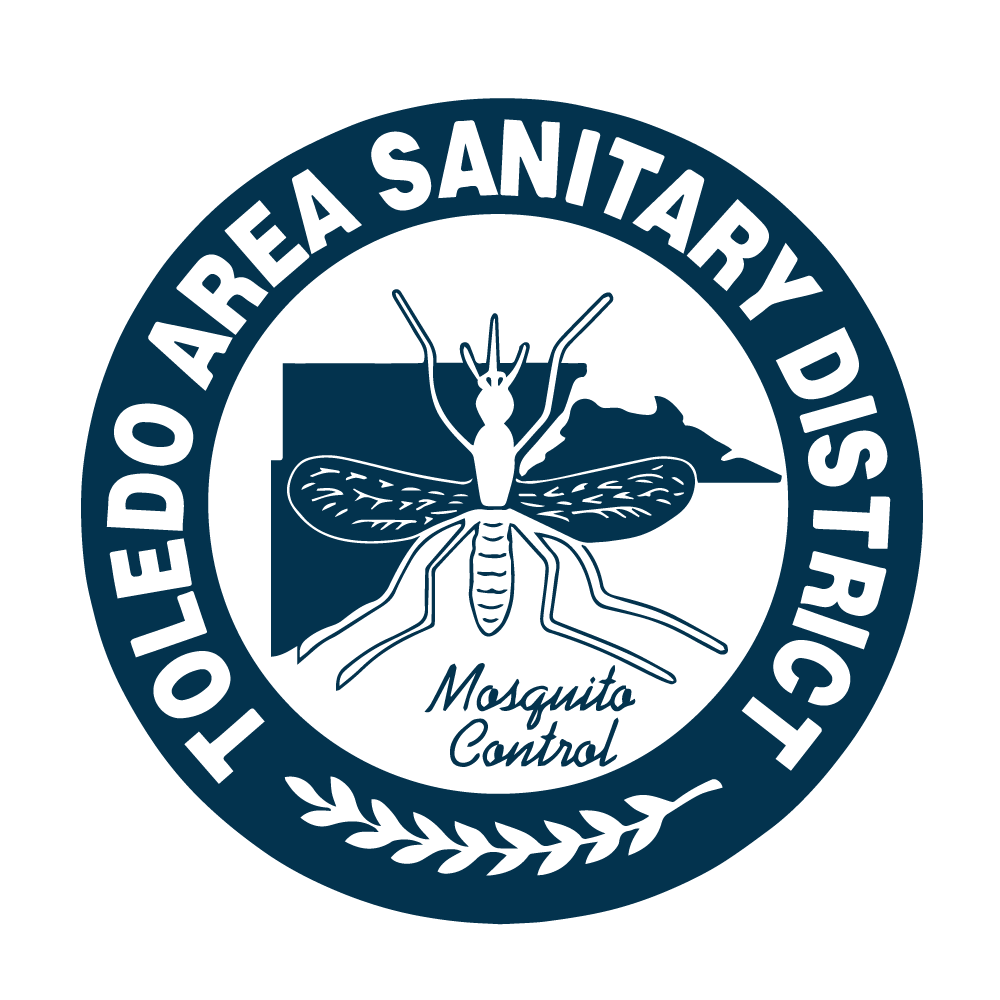
POLLINATOR
POSITIVE INITIATIVE
The Toledo Area Sanitary District is actively working to promote and bolster insect pollinator populations. A major reason for the decline in insect populations is habitat loss. In 2017 TASD installed and has since maintained and expanded a native planting area at its main office, which is aimed to provide resources and habitat for pollinators. In 2018 an educational honeybee (Apis mellifera) colony was added to the grounds. This colony is used to demonstrate and teach residents about the importance of pollinators to our ecosystem.
Concerned about the impacts of adult mosquito control on insect pollinators? Please read our Nighttime Fogging Impacts Review.
As part of our Integrated Mosquito Management Plan, TASD conducts large-scale breeding source reduction projects, which aim to reduce water blockages and mitigate potential mosquito breeding locations. Through these operations, TASD staff have the opportunity to increase pollinator habitat by seeding job sites with native wildflower seeds.
WHAT BEEKEEPERS CAN DO
If you are a beekeeper and are concerned about TASD’s adult mosquito control program, please see the list of helpful suggestions below:
-
While it is the law to register your bees with the Ohio Department of Agriculture, it also helps applicators, like TASD to know where bees are present. You can also, register your bees with BeeCheck™ an apiary registry by Fieldwatch®.
-
TASD adult mosquito control occurs from common roadways and typically only reaches approximately 300 feet. With this in mind, if possible, place your hives farther than 300 ft from the roads. This will reduce potential exposure risks. If you cannot place your hive far enough away from a road, consider facing your hives away from the road. This will further reduce the risk of exposure from adult mosquito control products to the entrance of your hives.
-
You can also use a barrier, like a privacy fence, placed in front of your hives to help reduce the risk of exposure to honey bees. If you are in an urban setting, having a barrier is a good consideration as it will raise your bees’ flight line and will help reduce bee/neighbor contact.
-
TASD follows an Integrated Mosquito Management Plan (IMMP), which aims to control mosquitoes at every stage of their life cycle and uses cultural, physical, biological, and chemical control methods. While a good IMMP does not attempt to eliminate chemical control it does aim to reduce it. One way to help reduce the use of chemical control is for homeowners to ensure that they are not breeding mosquitoes on their property. Draining and dumping standing water weekly will reduce the locations mosquitoes can breed. Reducing the number of adult mosquitoes that develop on your property will ultimately reduce the need for chemical adult mosquito control interventions.
-
If you have questions or are concerned about your bees and/or mosquitoes and their control. Please contact us at (419) 726-7891 or email us at info@toledomosquito.org.
TASD’s onsite honeybee (Apis mellifera) colony is pictured above.

